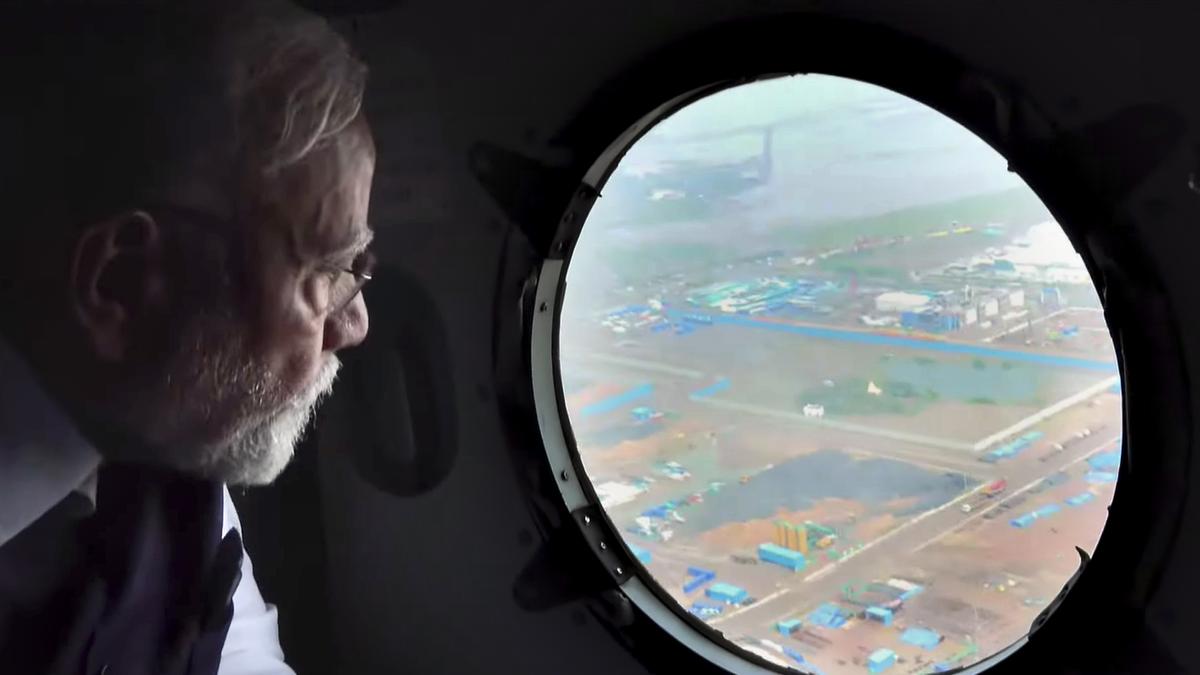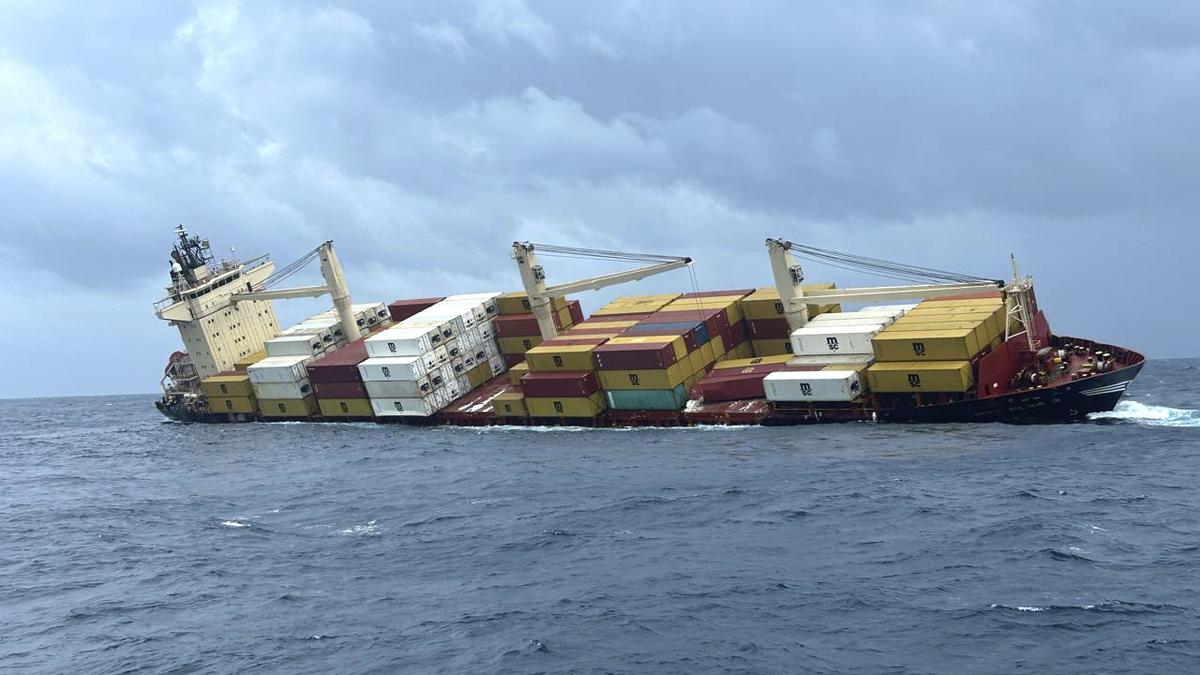Prime Minister Narendra Modi said that nobody in the world can be considered a major enemy of the country. If we have an enemy, “It is the dependence on other countries.”
“If we have to defeat that enemy and see that our 140 crore people are not left at the mercy of other countries and they live with pride, we have to become ‘Atma Nirbhar’ by 2047,” he said.
He went ahead to say that every shop should sell products that are totally ‘Swadeshi’. “We have to become completely self-reliant and self-sufficient,” he said.
He was addressing a public meeting at Bhavnagar in Gujarat on Saturday (September 20, 2025) after virtually inaugurating and laying the foundation stone of multiple development projects worth more than ₹34,200 crore in the maritime sector and other projects in Gujarat.
The event ‘Samundar se Samridhi’ (Transforming Maritime Sector) was jointly hosted by Make in India, Ministry of Ports Shipping and Waterways, Gujarat Government and Gujarat Maritime Board.
PM Modi reiterated that greater foreign dependence leads to greater national failure. For global peace, stability, and prosperity, the world’s most populous country must become self-reliant. “Chips or ships, we must make them in India,” said the PM.
Underscoring that India has never lacked capability, Mr. Modi remarked that after independence, the then ruling party consistently ignored the country’s inherent strengths. “As a result, even after six to seven decades of freedom, India could not achieve the success it truly deserved,” he said.
The Prime Minister identified two major reasons for this: prolonged entanglement in the license-quota regime and isolation from global markets. He added that when the era of globalisation arrived, the then ruling governments focussed solely on imports, which led to scams worth thousands of crores.
Talking about the maritime sector, Mr. Modi remarked that India was historically a leading maritime power and one of the world’s largest shipbuilding hubs. Ships built in India’s coastal States once powered domestic and global trade. Even fifty years ago, India used domestically built ships, with more than 40% of import-export conducted through them. But the sector later fell victim to their misguided policies and instead of strengthening domestic shipbuilding, they preferred paying freight to foreign vessels. This led to the collapse of India’s shipbuilding ecosystem and forced dependence on foreign ships. As a result, the share of Indian ships in trade dropped from 40% to just 5%. The Prime Minister emphasised that today, 95% of India’s trade relies on foreign ships — a dependency that has caused significant loss to the nation.
Stating some facts he pointed out, today, India pays nearly $75 billion — approximately six lakh crore Rupees — every year to foreign shipping companies for shipping services, which is close to India’s current defence Budget.
“Just imagine how much money has been paid as freight to other countries over the past seven decades and the outflow of funds has created millions of jobs abroad,” he said.
The PM said a historic decision has been taken to strengthen India’s maritime sector, the government now recognises large ships as infrastructure sector and this will transform the sector.
He announced that from today, all major ports in the country will be freed from multiple documents and fragmented processes. The implementation of ‘One Nation, One Document’ and ‘One Nation, One Port’, this will simplify trade and commerce.
“If we can revive the ancient glory of being top ship builders, it will have a chain reaction, as ship building industry, is not just an industry, it brings in other industries under its fold and generates huge employment. It is the ‘Mother of all Industries’,” he said.
He informed that more than ₹70,000 crore will be invested in these schemes in the coming years. Noting that in the past eleven years, India has doubled its port capacity, he highlighted that prior to 2014, the average ship turn-around time in India was two days, whereas today it has been reduced to less than one day.
He remarked that recently, India’s first deep-water container trans-shipment port has commenced operations in Kerala. Additionally, the PM announced that the Vadhavan Port in Maharashtra is being developed at a cost exceeding ₹75,000 crore, and it will rank among the top ten ports in the world.
He informed that large ports are being developed across the country to accommodate large vessels, and connectivity is being enhanced through initiatives such as Sagarmala.
Mentioning that India currently accounts for 10% of global maritime trade, the PM emphasised the need to increase this share and declared that by 2047, India should aim to triple its participation in global sea trade.
The Prime Minister emphasised the importance of preserving and showcasing this heritage for future generations and the world. He announced that a world-class maritime museum is being developed at Lothal, which, like the Statue of Unity, will become a new symbol of India’s identity.
Governor of Gujarat, Acharya Devvrat, Chief Minister of Gujarat, Bhupendrabhai Patel, Union Ministers, C.R. Patil, Sarbananda Sonowal, Dr. Mansukh Mandaviya, Shantanu Thakur, Ms. Nimuben Bambhaniya were present among other dignitaries at the event.



.png)
.png)
.png)
















 1 hour ago
4
1 hour ago
4









 English (US) ·
English (US) ·